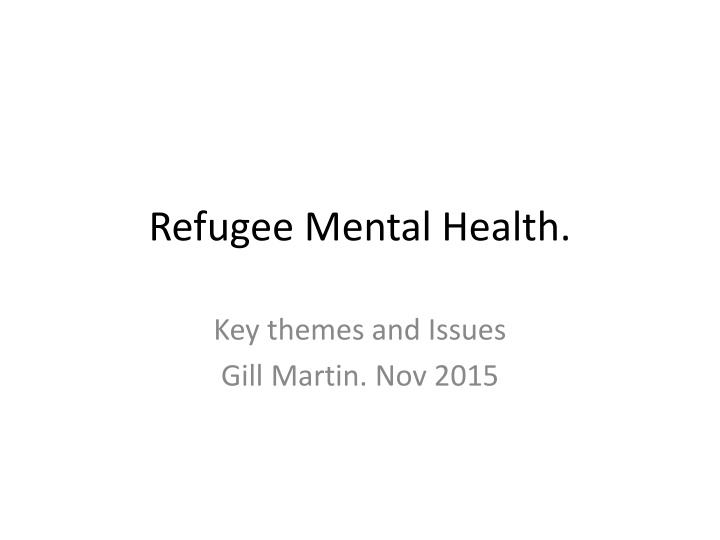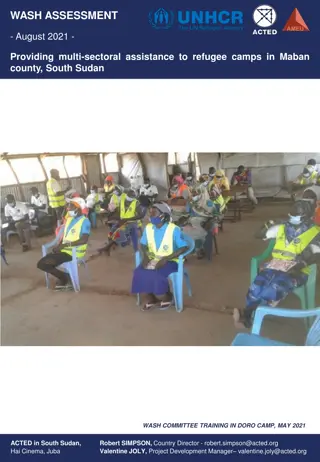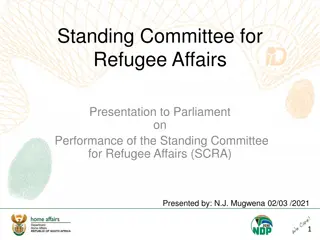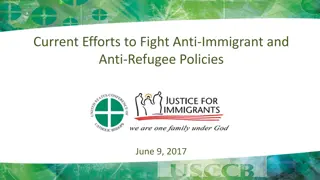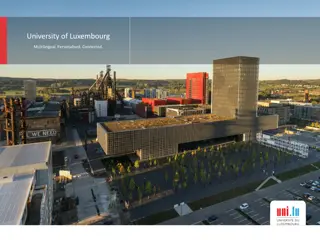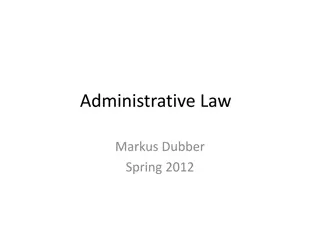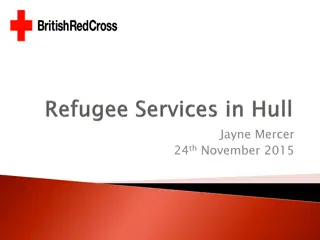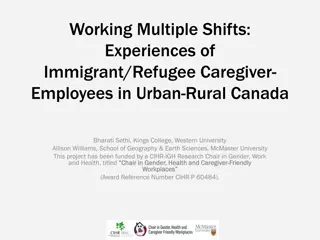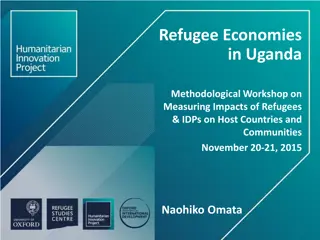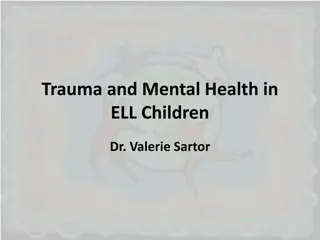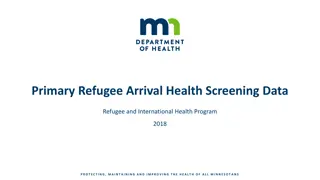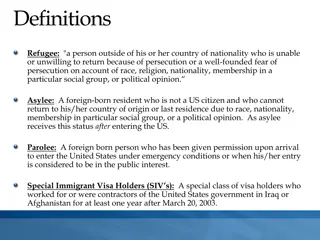Refugee Mental Health Key Themes and Issues
Key themes and issues related to refugee mental health are explored in this content, including factors affecting mental health and the impact of shame on pregnant asylum seekers. The document also discusses the context of conflict and inequality that refugees often face, along with the challenges of trafficking and holistic care for refugees' mental well-being.
Download Presentation

Please find below an Image/Link to download the presentation.
The content on the website is provided AS IS for your information and personal use only. It may not be sold, licensed, or shared on other websites without obtaining consent from the author.If you encounter any issues during the download, it is possible that the publisher has removed the file from their server.
You are allowed to download the files provided on this website for personal or commercial use, subject to the condition that they are used lawfully. All files are the property of their respective owners.
The content on the website is provided AS IS for your information and personal use only. It may not be sold, licensed, or shared on other websites without obtaining consent from the author.
E N D
Presentation Transcript
Refugee Mental Health. Key themes and Issues Gill Martin. Nov 2015
Conflict and Inequality The context is a growing national and global increasing inequality of wealth. 85 of the richest people in the world have the same wealth as the poorest 50% (Oxfam) The UK is the only member of the G7 countries where inequality has grown since 2000. The richest 10% own 54% of the wealth.
Refugees: Where and why. The number of forcibly displaced people worldwide is 59.5 million 2014 (51.2 million.2013) At the end of 2014, 14.4 million (11.7 million in 2013) people were under the protection of the UNHCR an increase of 2.7 million over 2013 38.2 million are internally displaced, 7.6 million people in Syria (2014) The UK ranks 13thin countries taking refugees
Trafficking Trafficking in human beings is one of the forms of modern slavery currently being addressed by the Modern Slavery Bill March 2015. Trafficked women have many similar problems to those of refugee women. One of the aims of the Bill is to clarify and extend the existing legislation on trafficking particularly in relation to children. The Bill will provide for trafficked children to have advocates. (currently piloted).
Mental Health and Refugees Holistic care There are key elements in understanding the circumstances of a refugee. Political/Legal/Economic Cultural and Religious Interpersonal problems Intrapsychic problems
Factors affecting mental health What happened in the country of origin What happened on the journey What happened here in the UK
Shame Why might a pregnant asylum seeker feel shame Would an understanding of the impact of shame help to explain things like not keeping appointments, late bookings, denying the pregnancy for example.
Assessment Country of origin. (Country information) Language and interpretation. Work as partners Culture and faith Gender Legal status Family structure Age/educational history/employment Current sleep pattern Physical pain
Assessment (cont) Present social relationships/degree of isolation Current anxieties: eg about family left behind Early history Family affiliation to political/cultural groups Degree of loss Degree of violaton
Loss Involuntary loss of home Loss of family members Loss of profession/livelihood Loss of status Loss of land Loss of the familiar/food, plants, colour, landscape etc
Violation Of body boundaries Of psychic boundaries Of narrative order Of hopes and futures Of family structure. Of traditions Of social group. Of belief
Trauma Can you recover from trauma or do you have to live alongside it.
Ask. Dont assume. Sarah is 25. She was trafficked to the UK at 14. Her mother father and brother are all dead. She only discloses her pregnancy at five months. Her partner is supportive but she has to have a caesarian section and misses eappointments. She is terrified because in Nigeria she fears she would have died. She thinks the same might happen here.
Children of rape. In many cases the relationship is ambivalent The child can come to represent the woman s fear and hatred of the rapist. The woman may need help with play, with looking at the child. Speaking about the rape can help her to make a distinction between the child and the rapist, emotionally. Acceptance or rejection are the extremes faced by the mother.
Common Symptoms Sleeplessness Nightmares Anxiety Withdrawal Memory impairment Aggression Retraumatising eg TV Cultural shock
What is we are trying to do Build trust Assess in a comprehensive way. Is a talking therapy going to help. How does it fit with a severe and enduring mental illness model of ill health or a CBT IAPT model. Timescales
(cont) Bearing witness Clarifying Believing The reclamation of time and space. (Schlapobersky) Identifying those issues you can address and those you need to refer for. Recognise you will need to search for information.
Cultural Competence Don t assume you know....ask Don t use western terms if you are not sure the person understands..find a space between you to have a conversation which means something. Recognise this is a complex area but don t be deskilled, just be sensitive to areas of misunderstanding and confusion.
Ask for explanations. There are many different birth practices in different cultures. Many women would have help from their mother or a female relative for 40 days, and not leave the house during that time. Another example: in Yoruba culture, the baby has to have a naming ceremony within 7 days, while in Ibo and Edu culture the ceremony would be in 3 months. Be curious.
Refugee Children Risk Factors . Parental factors. PTSD in either parent Torture/rape of parent esp. Mother Death or separation from parents Parents underestimating how resilient the child is. Unemployment of parents
Children (cont) Child Factors Number of traumatic events witnessed or experienced. PTSD leading to long term vulnerability Physical health problems/injuries Language difficulties Limited prior access to education
What promotes resilience A sense of belonging Thinking with adults who can help you make sense of your world Active problem solving strategies Feeling part of a community of exile. Being able to live according to values that are familiar and meaningful Being able to forgive oneself.
Environmental Factors Number of transitions Poverty Time taken for immigration decision Cultural isolation Period of time in a refugee camp Time in host country
Reading List Psychosocial Wellbeing of Refugees. Ed Frederick L Ahearn Berghahn Books 2000 Mental Health of Refugees and Asylum Seekers. D Buhgra, T Craig and K Bhui. Oxford University Press 2010 An Exploration of midwives experiences of caring for women seeking asylum. Sarah Bennett. 2011 Improving Care for Refugee and Asylum Seekers. The Experience of midwives. Understanding Race and Ethnicity ed. Craig G, Atkin K, Chattoo S and Flynn R. Policy Press 2012 Race Culture and Psychotherapy. Roy Moody and Stephen Palmer Routledge 2006 Therapeutic Care for Refugees/ Ed Renos Papadopoulos. Karnac 2002 Post traumatic stress Disorders in Children and Adolescents. R Silva W W Norton 2004 Supporting Refugee Children Jan Stewart. Univ of Toronto Press 2011 Working with Interpreters in Health Settings BPS 2008. Working Paper. Rachel Tribe et al. Culturally Competent Therapy. Working with Children and Adolescents. Steven Walker Palgrave 2005 Borderline Justice. Frances Webber Pluto 2012 Broken Spirits/ ed John P Wilson/Boris Drozdek Brunner Routledge 2004 Counselling and Therapy with Refugees. G van der Veer. Wiley 1998 Medical statistical ethical and Human rights considerations in the assessment of age in children and young people subject to immigration control. A Aynsley Green et al. British Medical Bulletin 2012 102:17-42
